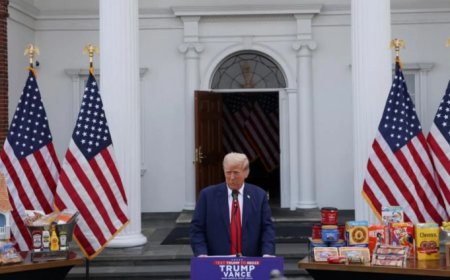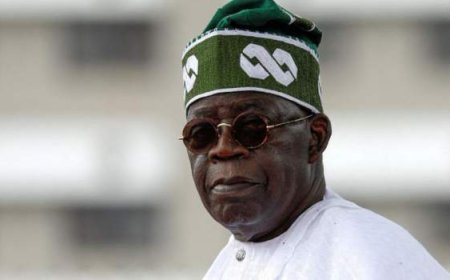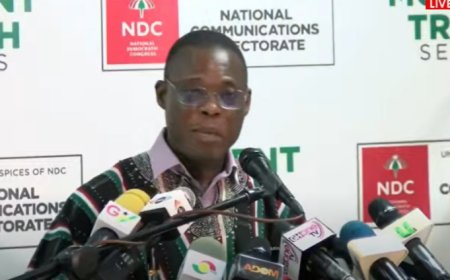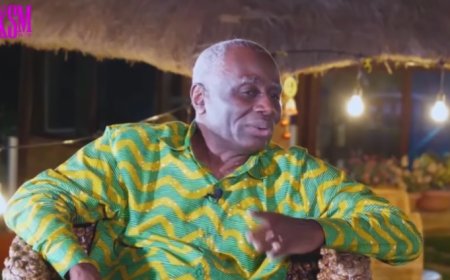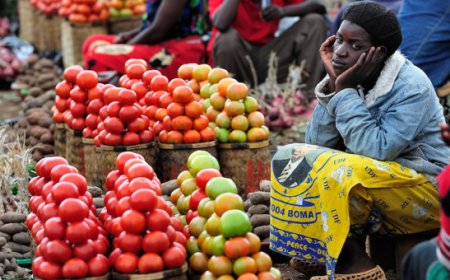Dr Wilberforce Dzisah Urges Media to Prioritize Peaceful Elections
Dr Wilberforce Sefakor Dzisah, former Rector of UNIMAC-GIJ, urges media practitioners to avoid promoting divisive political rhetoric ahead of the December 7 elections. Speaking at a UNESCO training for journalists, he emphasized the role of the media in maintaining peace and security.
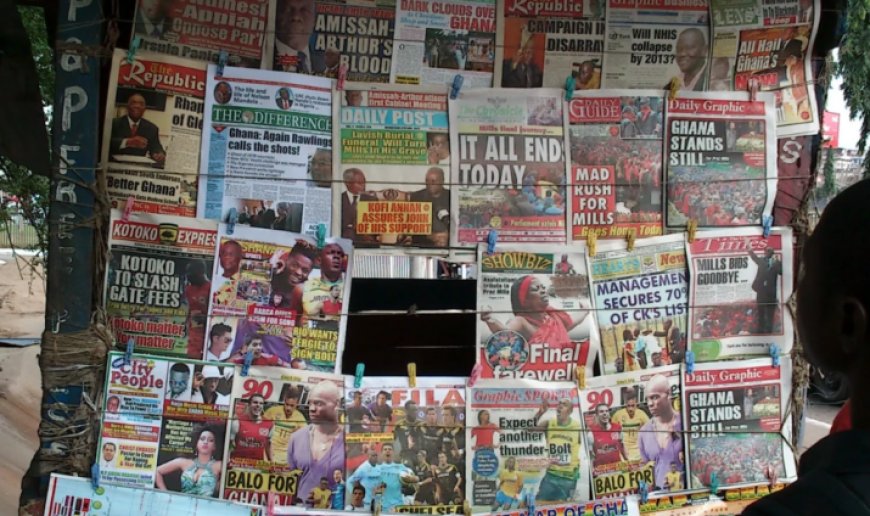
Dr Wilberforce Sefakor Dzisah, former Rector of the Ghana Institute of Journalism (now UNIMAC-GIJ), has called on media practitioners to refrain from giving prominence to political actors whose statements could disturb the peace and security of the country.
Dr Dzisah made this appeal during a two-day training session organized by the United Nations Educational, Scientific and Cultural Organisation (UNESCO) for selected journalists in the Greater Accra Region. He emphasized that responsible media coverage is essential for the country to emerge from the December 7 presidential and parliamentary elections united and unscarred.
“We must ensure that those we speak to, those we bring to our studios to communicate for the various political parties do not unnecessarily incite hatred, intolerance, particularly religious intolerance and also issues of gender violence,” Dr Dzisah stressed.
The training aimed to sensitize journalists on international standards regarding human rights, freedom of expression, freedom of the press, and elections. It also sought to enhance their capacity to cover the 2024 elections effectively, considering the impact of the new digital era, including the internet, social networks, Artificial Intelligence (AI), Big Data, and Machine Learning.
Additionally, the training focused on gender-sensitive media coverage during elections and addressing harmful online content while securing freedom of expression and access to information. The event was themed “Elections in Digital Age: Countering Hate Speech and Misinformation on Social Media Platforms for Peaceful Elections.”
Dr Dzisah highlighted the crucial role of journalists and the media in sustaining the country’s peace and democracy. He urged media practitioners to act professionally and avoid becoming tools for political, religious, and tribal tensions.
“We must also eschew issues of ethnocentrism, tribalism and also religious intolerance,” he emphasized.
He also stressed the importance of impartial, accurate, and objective coverage of the 2024 elections, reminding journalists to prioritize the national interest. “We should first and foremost show professionalism, we should be objective and balanced in our reports, we should check our facts and we should also ensure that we do not fall for disinformation, misinformation and mal-information and it is important that truth will stand in our engagements,” he said.
Dr Dzisah, currently the Head of Department, Liberal Arts and Communications Studies at the Ghana Institute of Management and Public Administration (GIMPA), also urged Ghanaians to be mindful of their utterances, especially in the run-up to the 2024 elections. He emphasized the need for expressions of opinion to remain within the confines of the law, citing Article 164 of the 1992 Constitution, which prohibits the dissemination of information that could lead to disorder or affect public morality and national security.
Mr Edmond Moukala, Representative and Head of Office at UNESCO Accra, also spoke at the training, stressing the importance of professionalism in media reportage to maintain peace before, during, and after the elections. “Let me stress that the values of journalism—truth, fairness, and integrity—are more important than ever,” he emphasized.
He noted that digital technology has rapidly transformed the journalism landscape, with social media platforms accelerating the speed of news reporting. However, he urged journalists to continue pursuing accountability, balanced, and fact-checked reportage. “Let us be guided that the spread of false and misleading information still possesses a challenge, therefore, we encourage you as journalists to verify information precisely and swiftly before disseminating,” he stressed.
Dr Aurelia Ayisi, Lecturer, Department of Communications Studies, University of Ghana, also encouraged self-censorship to ensure the right information is disseminated to the public.
All rights reserved. This material, and other digital content on this website, may not be reproduced, published, broadcast, rewritten or redistributed in whole or in part without prior express written permission from TOP KNOWLEDGE MEDIA.
Contact: toppknowledgemedia@gmail.com
Stay informed and ahead of the curve! Follow The TOP KNOWLEDGE MEDIA on WhatsApp for real-time updates, breaking news, and exclusive content. Don't miss a headline – join now!
Join Top Knowledge Media Channel:
https://whatsapp.com/channel/0029VaEUCpP4NVigCMWy8J22
What's Your Reaction?







